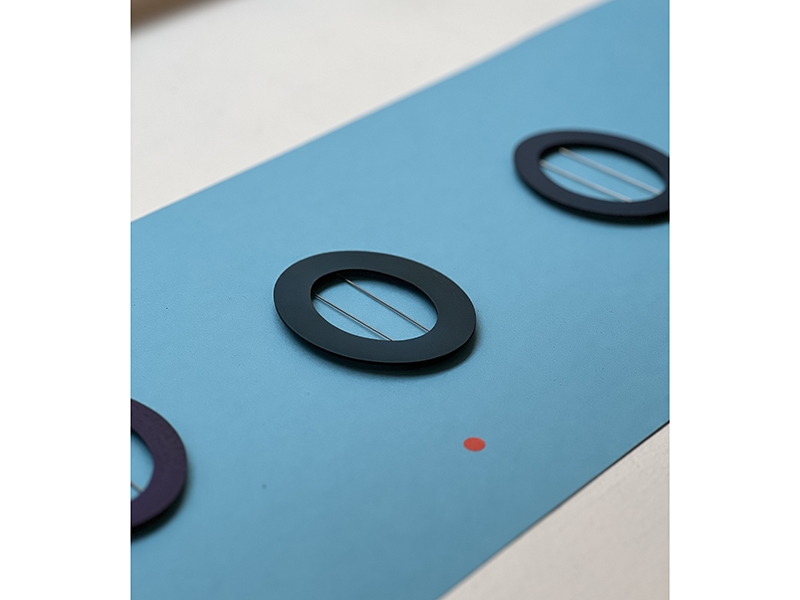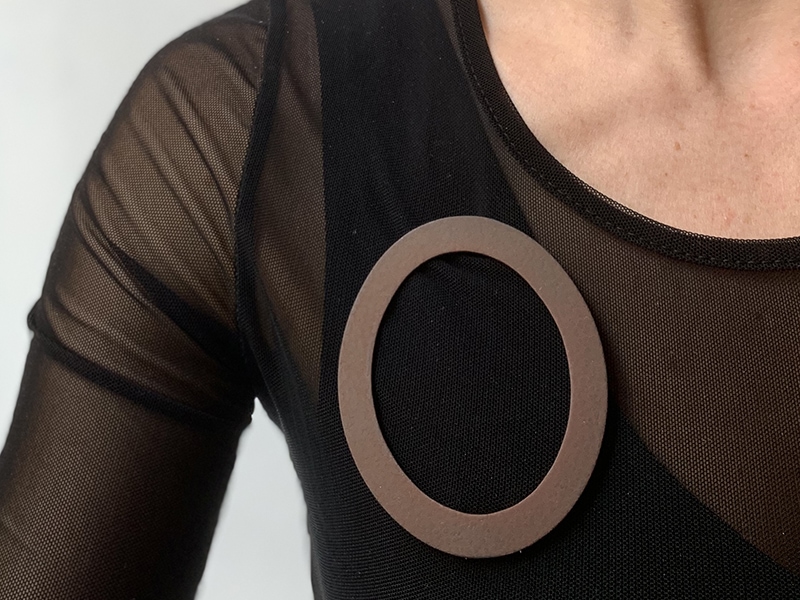[ad_1]
- Brooches, arranged in two branching rows reminiscent of a family tree, portray jewelry colleagues, gallerists, curators, and peers whom the maker has encountered throughout his career
- The brooches emit a gentle sound and crinkle when handled. The artist, Tore Svensson, used veneer painted with seven thin layers of acrylic because he needed a portable medium while traveling
- One can decode much information from a simplified outline in a streamlined vector graphic
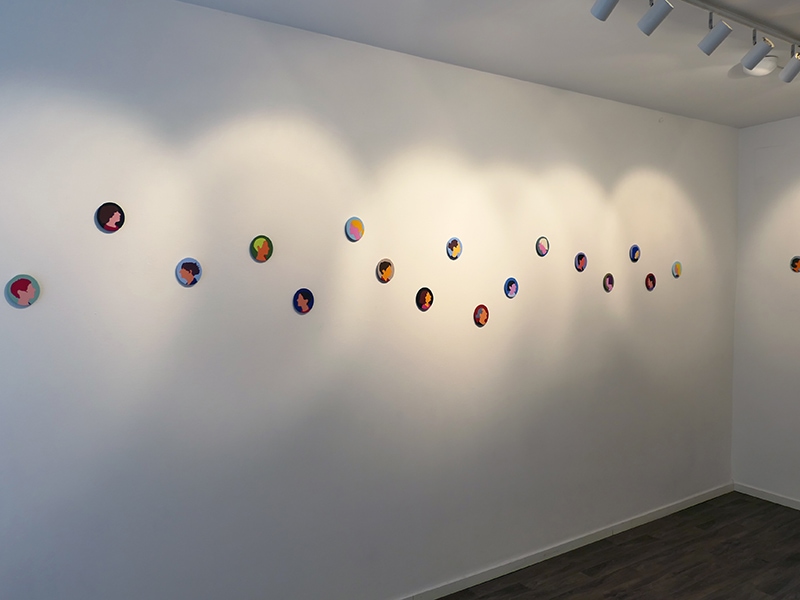
Tore Svensson
February 16–March 16, 2024
Gallery Four, Gothenburg, Sweden
Just across from the central station in Gothenburg’s city center lies the oblong King’s Park. A 30-minute walk along its serpentine paths and magnificent trees leads me to a picturesque part of town known as Haga—which means “pasture“ in English. The name feels particularly apt, considering that it is home to the artist-run exhibition space Gallery Four, vital for many Gothenburg-based jewelry makers.
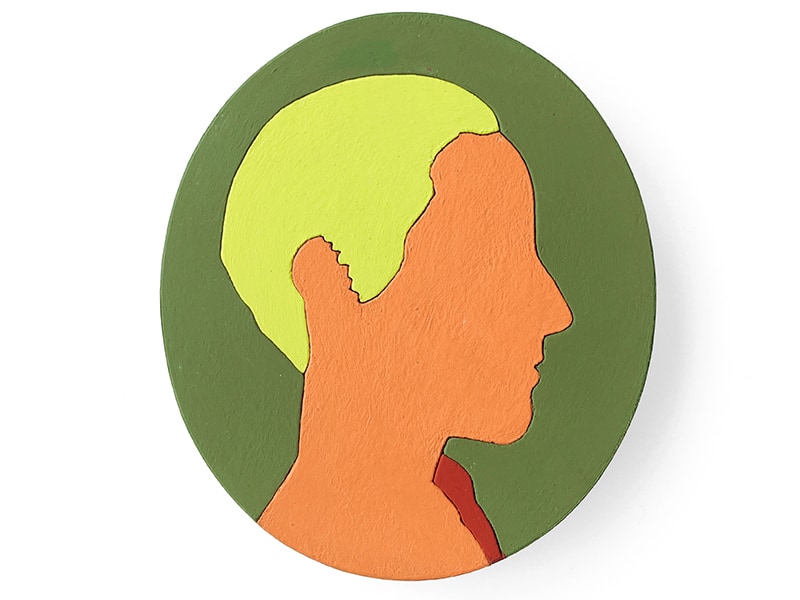
Established in 2010, Gallery Four has emerged as an anchor for the local contemporary jewelry community, serving as a maker space, an exhibition venue, and a meeting point. Karin Roy Andersson is one of the founding members and the gallery’s program coordinator. Enthusiasm was conspicuous in her eyes when she introduced me to Tore Svensson’s very first solo show at Four. Svensson’s work, from his cameo-inspired brooches etched with portraits on steel plates coated in fired linseed oil to his vibrant lake series of brooches and the meticulously thousand-times-hammered iron bowls, has gained international recognition and is instantly recognizable to many. Yet in this latest exhibition, a very subtle evolution in materials, coupled with Svensson’s contemplative reflection on his artistic process, is distinctly palpable.
In the front gallery window facing the street, sitting on a blue sheet of paper, are four steel brooches. These brooches, hollow oval shapes of varying thicknesses, showcase muted colors of purple, blue, and green, and are titled Frame. They serve as an invitation to the exhibition, evoking a sense of familiarity and luring visitors inside the gallery, where an unexpected interplay of materials and colors unfolds. Upon entering the gallery, the purpose of the frame quickly became clear to me. Hung against the gallery’s three white walls are 21 brooches, each depicting a female profile in a pop-art color palette. Some of the profiles seemed more familiar than others.
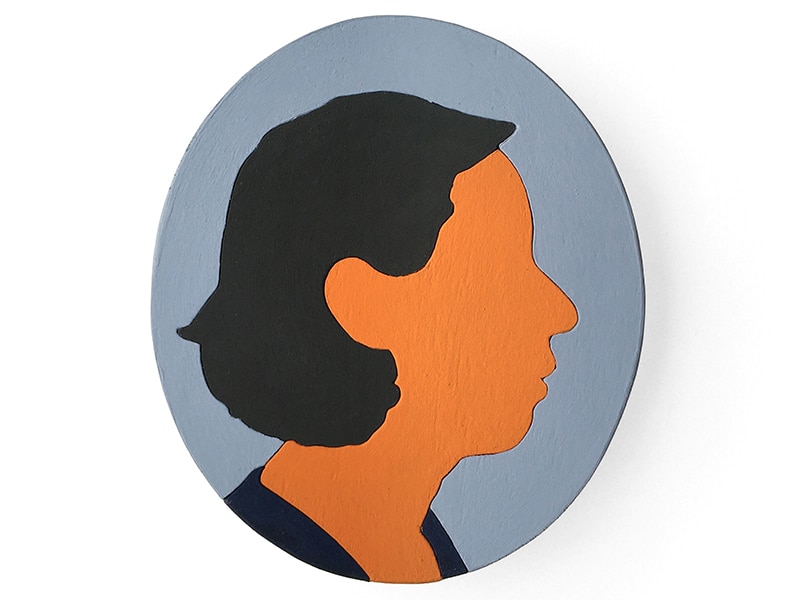
It’s fascinating how much information one can decode from a streamlined vector graphic, a simplified outline representing the essence of reality. As I shifted my gaze across the different portraits, I imagined the stories embedded in these pieces. Who is she? How old is she, and is she real? Inspecting the hairstyle and observing the distinct curves defining the nose and chin, I wondered: Do the varying color choices of the hair, clothes, and skin, ranging from bright pink through ochre yellow and neon green, communicate a particular story as well?
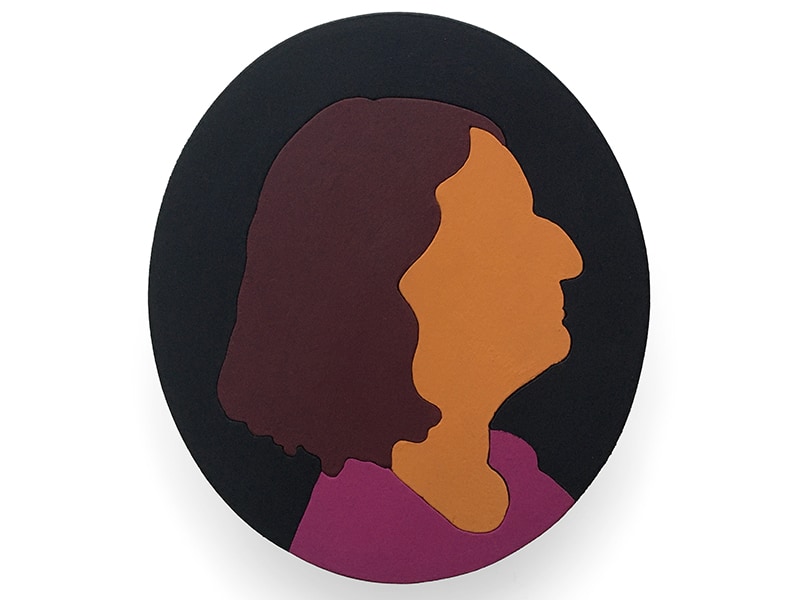
While peering deeper beneath the surface, with a couple of subtle hints from Svensson and Andersson, I identified two women depicted on the brooches: Swedish jeweler Sara Borgegård Älgå and Australian jewelry artist Helen Britton—my only two successful guesses. “Do they know about this? ” I asked, turning to Svensson. He responded, “Um, some of them know, others don’t know yet.” Surprise!
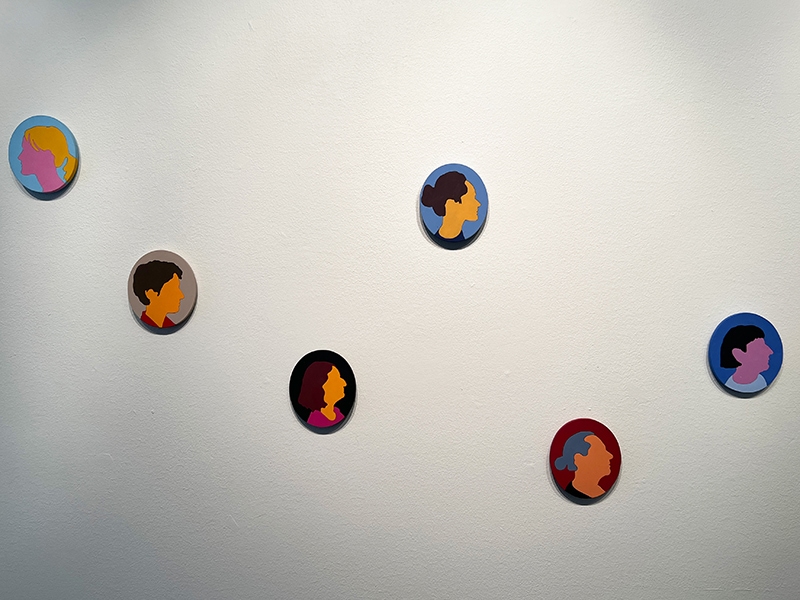
I subsequently discovered that the brooches are a free continuation of the series Portraits No 2, portraying jewelry colleagues, gallerists, curators, and peers whom Svensson has encountered throughout his career. He has been amassing these images, with permission, for many years, but the moment of how, in which form, and when they will reappear in his work remains an enigma, depending exclusively on the artist’s will. Despite the seemingly deliberate choice of depicting solely female artists, Svensson confesses it was an intuitive decision. This approach further supports the exhibition’s lack of a title, intentionally avoiding any labels that might define the content, the women portrayed, or the new direction that the artist has explored in his recent work.
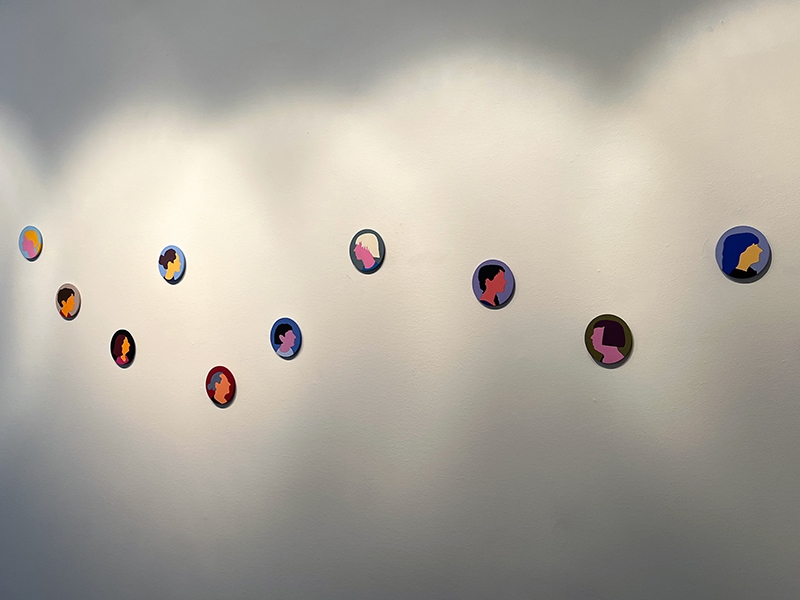
From the outside, viewing the work as a series, one senses an element of endlessness and ambiguity. Yet on a second, much closer examination, the brooches, neatly arranged in two branching rows reminiscent of a family tree, capture many personal histories and significant in-person encounters within the simple forms. Collectively, they serve as a living archive of a specific moment in contemporary jewelry history, documenting the lives of contemporaries in Svensson’s circle. The brooches, each marked with the initials of the portrayed artists, are not explicitly identified within the exhibition, unlike in the earlier Portraits and Portraits No 2 series, where each steel brooch carried the first name of the person depicted. This absence of direct identification leaves viewers to depend on their own knowledge and fragmented memories of faces and people, encouraging deep reflection and recollection of their own personal encounters.
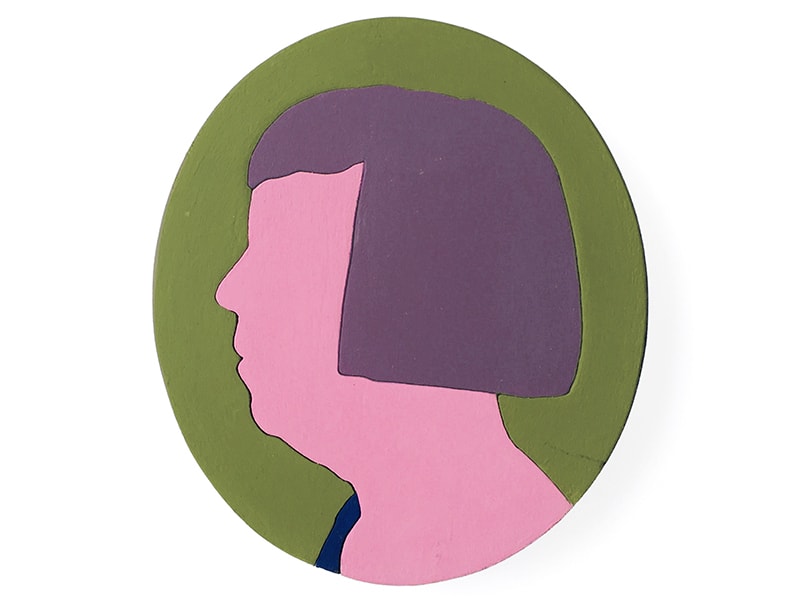
Crafted from two thin layers of veneer, the brooch emitted a gentle sound and crinkle when it was taken down from the wall and handled. It was surprisingly light for its larger size. One can observe the cutting paths that define the four parts of the brooch, delineating the clothing, face, hair, and background. It is common in artistic practices to desire to explore new directions after a period of working repetitively with specific techniques or motifs. In Svensson’s case, the shift to using veneer, a somewhat new material in his oeuvre, stemmed from the need to find a more portable medium while traveling and staying in Berlin with his wife. Svensson’s affinity for time-consuming processes is however still evident in the hand painting of the brooches. Seven thin layers of acrylic paint spread evenly across the veneer surface, resulting in a matte finish, are just one example of that, even though it is still a less time-intensive process than other techniques. The reverse side of the brooch features a classic oxidized silver mechanism with two pin stems, ensuring the pieces are fully wearable.
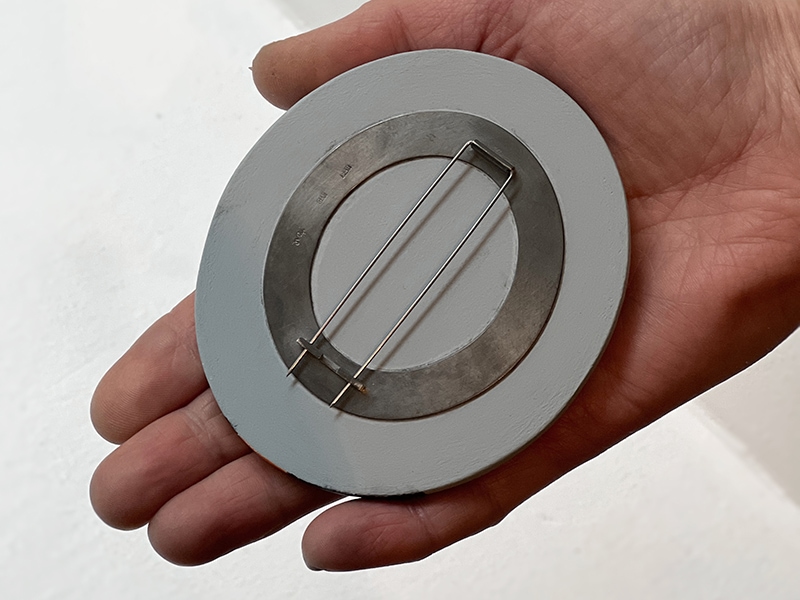
“Who wears who? Am I allowed to buy and wear myself?” Karin Roy Andersson posed the question while pinning a brooch with her own portrayal on the right side of her chest. Being depicted on one of Svensson’s pieces carries a certain prestige, especially in an era when easily accessible selfies overflow the internet and social media, and where self-image-building is so omnipresent in contemporary society.
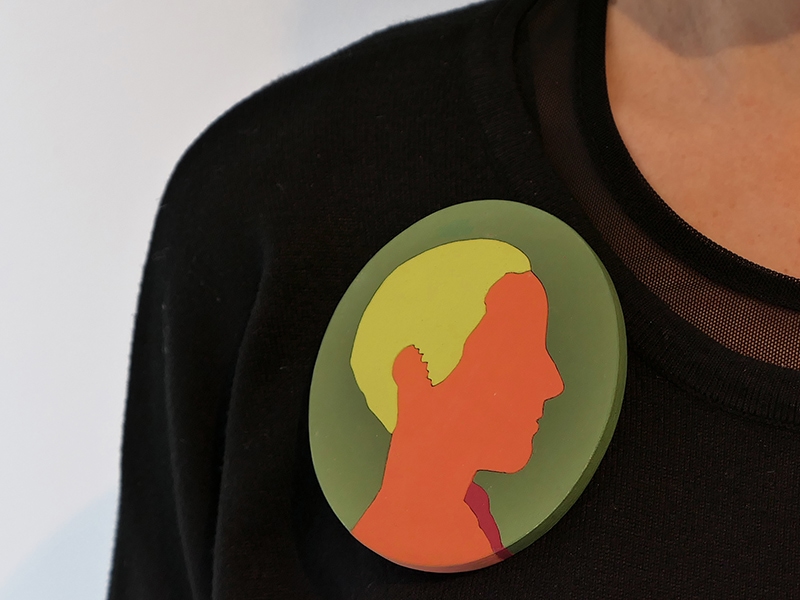
Looking back at the exhibition Covers, at Hannah Gallery in 2020, where Svensson paid homage to artists from previous centuries through a series of colorful geometrical brooches, one can draw a parallel with the current work. This blend of concepts and motifs from the Covers and Portraits series is also evident in the use of vivid colors. The themes of shared authorship, questions of ownership, and identity emerge strongly once again in Svensson’s latest work and linger throughout the exhibition. However, don’t look for answers to these questions within the exhibition. The jewelry simply offers the viewer an opportunity for reflection and a space to witness and participate in a specific moment in the history of jewelry, all through subtle narration, color, and time.
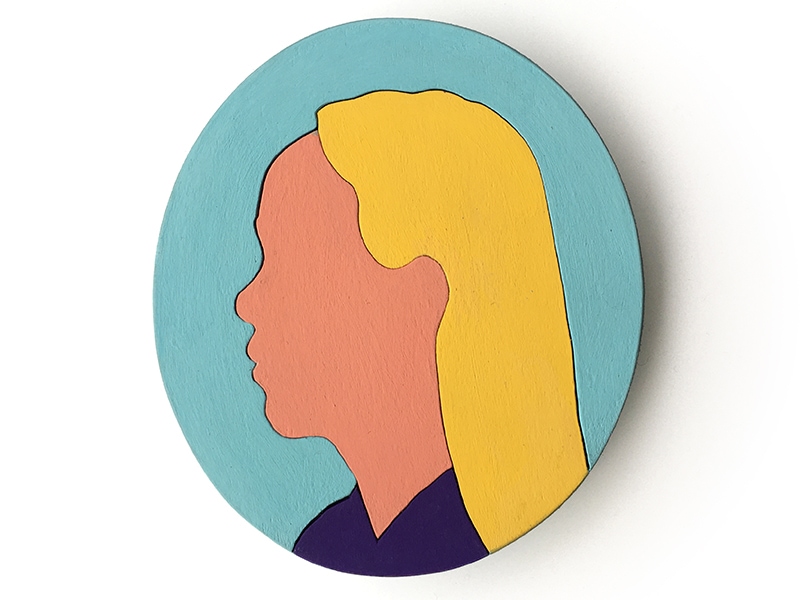
We welcome your comments on our publishing, and will publish letters that engage with our articles in a thoughtful and polite manner. Please submit letters to the editor electronically; do so here.
© 2024 Art Jewelry Forum. All rights reserved. Content may not be reproduced in whole or in part without permission. For reprint permission, contact info (at) artjewelryforum (dot) org
[ad_2]


